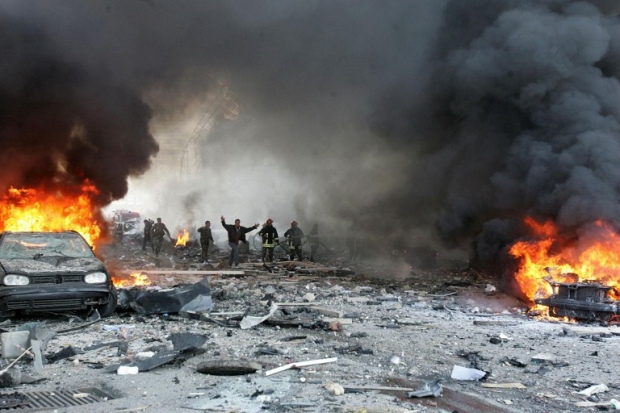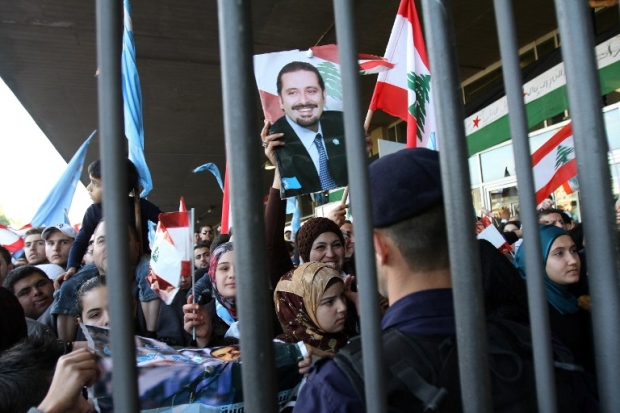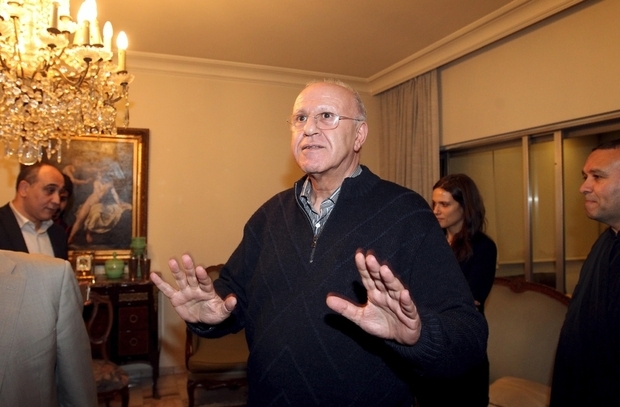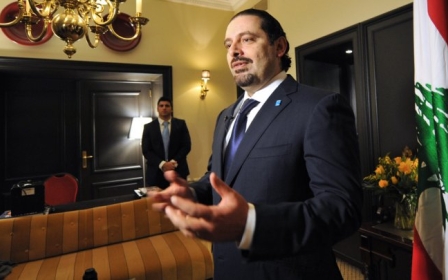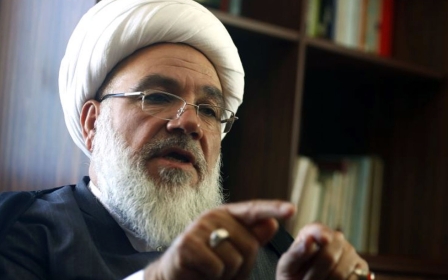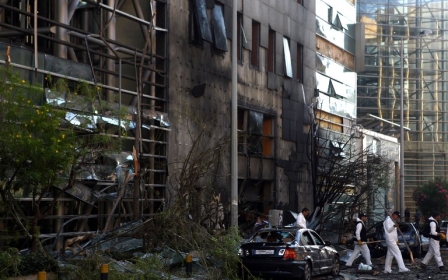The unholy alliance that would make Rafik Hariri turn in his grave
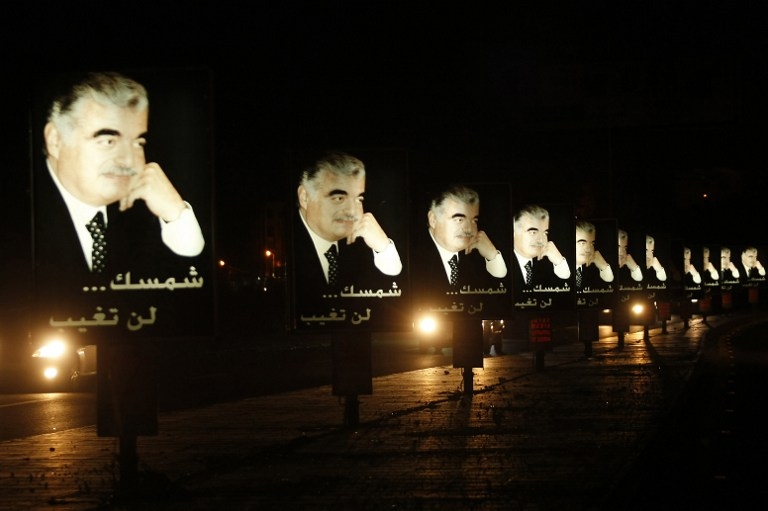
Last week, former Lebanese prime minister Saad al-Hariri announced that he will be endorsing Maronite Christian Michel Aoun for the presidency in order to break the deadlock that has seen Lebanon fail to elect a head of state 45 times since the last president, Michel Suleiman, stood down in 2014.
Why is Hariri the Younger now making moves and alliances that would perhaps have his late father turn in his grave?
What is curious, however, is how Hariri could back Aoun who is an ally to the powerful Lebanese Shia Hezbollah movement, a client of Iran and an ally to the Syrian regime of President Bashar al-Assad.
After all, this is the same Saad al-Hariri who blames the Assad regime and Hezbollah for the murder of his father, Rafik al-Hariri.
The bomb attack devastated more than just the Hariri family; it also upended the Lebanese political scene. Although Hezbollah predictably blamed Israel for the assassination, a UN tribunal set up to investigate Hariri’s murder indicted four Hezbollah operatives for the killing.
Deal with the devil?
So why is Hariri the Younger now making moves and alliances that would perhaps have made his late father turn in his grave?
Did he not testify against his father’s killers and lay blame directly at the door of the Assad regime who are an integral part of the Tehran-Damascus-Beirut power trail that leads directly to Hezbollah chief Hassan Nasrallah? Why would he now turn his back on his current clique of allies in order to fall in line with Hezbollah?
However, political realities and the balance of power in Lebanon, in addition to ever decreasing Saudi Arabian support for Hariri personally, means that he must make pragmatic decisions or else be patient for a resolution to the political deadlock that has kept him out of power.
Apparently, patience is not one of Hariri’s virtues, and he has instead struck what some of his angered allies will see as a deal with the devil.
Control of the judiciary
Since Rafik al-Hariri’s murder caused international outrage that forced the Syrian army to withdraw from Lebanon, which it had long considered its backyard since 1976, the power vacuum left in the country was rapidly filled by the Shia militant group.
Not only was it highly organised and well-armed, it already had an understanding and mutually beneficial relationship with the regime of Hafez al-Assad that later continued when Bashar took over the reins of power following his father’s demise in 2000. This allowed Hezbollah to simply slide in to the driver’s seat once Damascus had withdrawn.
Hezbollah has been able to grow from a Lebanese militant movement based in the south of the country to becoming an ubiquitous presence throughout every aspect of Lebanese political, economic and social life.
It not only maintains a well-supported, Iranian-backed military wing, but it has also managed to infiltrate powerful Lebanese institutions in order to allow itself to move away from its raison d’etre of moqawama, or “resistance” against Israeli occupation (now almost completely history), to resisting the attempts of any other Lebanese factions to attain a slice of the power pie.
Samaha's lenient sentence
For a very long time, Hezbollah has managed to infiltrate the Lebanese Armed Forces (LAF) and, as of 2010, allegedly filled over a third of its ranks. Judging by continuous raids against Syrian refugee camps by the LAF in order to root out “terrorists” and other violent undesirables, Hezbollah has not only maintained that figure but could very well have expanded its presence.
This is also bolstered by the fact that the LAF and the military courts in Lebanon rarely do anything to prevent Hezbollah-related offences, including weapons smuggling.
In rare circumstances when they do act, perpetrators are given extremely lenient sentences. Take for example the case of former information minister and long-time ally of Damascus, Michel Samaha, who was convicted of planning attacks in Lebanon using explosives trafficked from Syria.
Samaha was initially handed a four-and-a-half-year prison sentence in 2015 by a military court, again under the sway of Hezbollah who wanted to reduce the burden that a close Assad ally would have to bear.
The Lebanese public could barely contain their outrage and fury. How can a man who was caught red-handed – with both audio and visual evidence released to the public confirming his guilt in the public conscience – walk away with such a light sentence?
Later, even Justice Minister Ashraf Rifi resigned in protest at the leniency shown by the military courts and the fact that Samaha was granted bail in early 2016. Perhaps realising that an entire PR disaster would not do for a character who had become a liability, when the retrial finally did occur, Samaha was handed a 13-year sentence, going some way to quell Lebanese public anger.
Pernicious and powerful
But Hezbollah is far from finished targeting its political and even social opponents. Earlier this month, Sheikh Bassam al-Tarras, a moderate Sunni cleric who tends to stay out of politics, was arrested and indicted on alleged links to the Islamic State terrorist group.
The fact that leading Sunni figures appear to be kowtowing to Hezbollah's will shows that, domestically, the group is moving from strength to strength
This led to a Sunni outcry and caused demonstrations, including those organised by the Muslim Scholars Committee, the leading Sunni clerical establishment which accused the indictment of being politically motivated due to al-Tarras’ involvement with and support to Syrian refugees who have fled their war-torn country.
Hezbollah’s influence in Lebanon is both pernicious and powerful. The fact that leading Sunni figures such as Hariri appear to be kowtowing to their will shows that, far from becoming weaker as a result of their brutal involvement in the Syrian civil war, Hezbollah are domestically moving from strength to strength.
Meanwhile, Lebanon's opposition flounders and seeks to cut deals with them in a system long plagued by its confessional governance.
- Tallha Abdulrazaq is a researcher at the University of Exeter's Strategy & Security Institute, and winner of the Al Jazeera Young Researcher Award. He blogs at thewarjournal.co.uk and tweets from @thewarjournal
The views expressed in this article belong to the author and do not necessarily reflect the editorial policy of Middle East Eye.
Photo: Billboards bearing portraits of Lebanese ex-premier Rafiq Hariri are pictured on the Sidon-Beirut highway in southern Lebanon on 13 February 2012 on the anniversary eve of his assassination in 2005 (AFP).
This article is available in French on Middle East Eye French edition.
New MEE newsletter: Jerusalem Dispatch
Sign up to get the latest insights and analysis on Israel-Palestine, alongside Turkey Unpacked and other MEE newsletters
Middle East Eye delivers independent and unrivalled coverage and analysis of the Middle East, North Africa and beyond. To learn more about republishing this content and the associated fees, please fill out this form. More about MEE can be found here.



